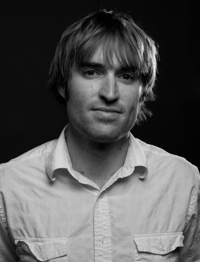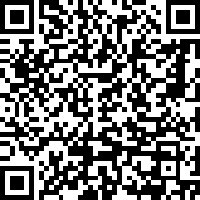On the evening of April 8th, 2009, I was in a motorcycle accident just a few miles from my home. When I awoke, I was laying on my side in the middle of a four-lane road, surrounded by people. The next sixteen hours provided me with a first-hand glance of how our emergency care system purports itself to work, as well as how it actually works. At a time when I legitimately needed to ensure my own well being, the events following the crash tested my principles far more than my pain tolerance.
The background of the accident is fairly a straightforward story. As I traveled northbound on a local arterial road, the driver of a vehicle three cars ahead of me slammed on the brakes and made an unexpected illegal left turn through a median at the bottom of a hill. The two cars in front of me were forced to slam on their brakes as well, narrowly avoiding one another in the process. I was later told that pedestrians in the vicinity heard the screeching of their tires, saw smoke rising from the burning rubber, and witnessed a red motorcycle crash into the back of a Ford Explorer and its passenger launched through the air.
Although I had seen the entire chain of events unfold before me and took every evasive action I could, the brakes on my motorcycle locked and threw me into a skid. Unable to control my motorcycle, I veered directly towards the back of the SUV. I turned the bike sharply to the left as a last ditch effort to avoid the car, but evidently did not come to the decision quickly enough. My motorcycle slammed into the vehicle instantly throwing me forward. As I flew forward through the air, my legs clipped the handlebars and the right side of my body forcefully slammed into the back of the Explorer. I wound up landing headfirst several feet away on the hard asphalt below. Had I not been wearing a helmet and minimum safety gear, I suspect the impact would have killed me, or at least left me with a severe brain injury. To those immediately on the scene, I appeared as nothing but a lifeless body laying in the fetal position. It is still unclear whether I fell temporarily unconscious, but I certainly was not moving – yet.
After some unaccounted period of time I found myself peacefully gazing up through my helmet’s visor at a growing crowd of people. Some sounded emotional; others as if they were trying to control the space around me, but to the best of my recollection, all sounded legitimately concerned about my well being. I could hear several speaking with emergency dispatchers from their cell phones. As I began hearing sirens in the distance, it occured to me what the ensuing medical costs would be for a medical transport and I decided at that moment I would need to take some action. Much to the verbal dismay of the onlookers, I carefully stood up in a mild stupor, brought my motorcycle upright, and proceeded to walk it off of the road so the growing traffic jam could pass. A number of individuals helped me to the side of the road and sat me down on the grass to wait for the fleet of emergency vehicles to arrive. One of the girls helping me was on the phone with EMS and told me an ambulance was on its way. Despite the condition I was in, I asked her to tell EMS that I did not require their assistance as I was not interested in paying the several hundred-dollar price tag that I knew would be associated with it. She did relay this message, but it was the policy of the emergency crew to show up on the scene anyway.
When the medical team arrived on the scene, they asked me a number of questions related to my condition and performed a very basic examination of my neck and spine. Even though they suggested it was in my best interest to go to the hospital with them, they were polite and professional as I declined their services. The chief police officer on the scene was incredibly considerate throughout the ordeal and ensured that I did not wish for any additional medical services before eventually waving the ambulance off. As the ambulance drove off and the traffic flowed regularly, those who had stopped to look slowly began to disperse.
In the end, the car that had turned illegally was nowhere to be found and my collision with the Explorer was ruled a no-fault accident by the police. I managed to get a ride back to my house from the local motorcycle towing company on the scene, but my ordeal with American healthcare was just beginning. I first attempted to get in touch with my insurance provider to determine if this sort of incident would be covered by my catastrophic plan. I ultimately gave up after about forty-five minutes, as I was unable to get in touch with anyone, though I did later find out that any costs would simply have been applied towards my catastrophic deductible. With my pain worsening by the minute, particularly as the adrenaline from the accident had worn off, I was clearly in need of medical attention. I relayed the details of the accident to an ex-girlfriend and she graciously came to my assistance and took me to the hospital.
Torn, bloodied, and unable to move my right arm, I hobbled into the emergency waiting room and spoke to a nurse about needing medical attention. Seeing the condition I was in, she quickly brought me into the admittance room to check my vitals and gather some information from me. The check-in process itself was very fast and efficient, and there was no wait to be assigned to a private trauma room. As the nurses concluded the check-in process and wrapped the iconic medical bracelet around my left wrist, I paused and asked them what I assumed at the time was a very common question. I asked them how much the examination was going to cost. Both nurses appeared almost startled that I would be asking such a question under the circumstances. One of them responded very curtly that she did not know and that it was unimportant given my current condition. I felt as if I had asked her something offensive.
I explained calmly and clearly my understanding of how it would be difficult to provide an exact dollar amount, and that I was merely asking for a ballpark figure. I even went on to explain that I simply wanted a very basic medical examination to be sure that I did not have any internal bleeding and that my skull was not fractured. Anything more would be a huge bonus to me. Regardless of this clarification, I was again told that it would be impossible to give me any sort of a figure and that I should not be concerning myself with the medical costs.
After pushing for what seemed like several minutes, one of the nurses eventually relented to my increasing agitation and informed me that the medical attention would likely cost between five and seven thousand dollars. Although I did plead unsuccessfully for a more reasonable price, particularly given the attention I felt I needed, I informed the hospital that I could not justify paying such a high fee for the basic care I was seeking and that I did not want to receive medical treatment. The stunned expressions on the nurses’ faces left quite an impression upon me and I was promptly asked to leave the admittance room.
Literally dripping blood with each step, I slowly hobbled back across the waiting room towards the front door and was driven back home. My ex-girlfriend, brother, and another dear friend kept their eyes on me throughout the evening as I waited for the local urgent-care facility to open. Ten hours after the accident I was taken by my brother to an urgent-care facility and finally received a full, and much needed medical examination. Doctors examined my neck and spine, checked for signs of head injuries and internal bleeding, tended to dozens of lacerations, took and interpreted eleven x-rays of my arm, leg, head and neck, and provided me with antibiotics and pain medication. I paid my bill in full on the spot without any type of insurance for a grand total of $252, almost twenty times cheaper than the lowest figure the emergency room nurse had estimated.
continued in "Part V: Impractical Expectations"
|
|
|

